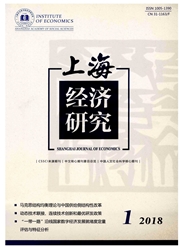

 中文摘要:
中文摘要:
本文在危机应对的宏观调控政策理论辨析的基础上,借鉴资产负债表衰退理论的研究成果,尝试对宏观调控理论基础展开全新的阐释与理论拓展,并以美国的"罗斯福新政"、"克林顿新经济政策"和"1998年后中国政府的积极财政政策"等案例予以佐证说明,重点给出了1998年后中国实施的积极财政政策实证意义上的研究结果,指出了其中成功的经验与遗留的问题。最后,基于理论与实证研究的结论,给出了现阶段科学实施宏观调控的政策建议。
 英文摘要:
英文摘要:
Based on the analysis of macro - regulation theory and policy and drawing on the latest research in theory of the balance sheet recession, this paper try to give a new interpretation and extension for the theoretical foundation of macro - regulation. Then, to support the thesis, the paper gives several documented cases, such as Roosevelt's New Deal, Clinton's New Economic Plan, and former Chinese premier Zhu Rongji's Proactive Fiscal Policy. Especially, we focus on the policy implemented after 1998 in China, expounding the research result in sense of proactive economics and summarizing the experience and problems unsolved. Finally, based on the conclusion from theoretical and empirical study, we give some policy recommendations with regard to the macro -regulation.
 同期刊论文项目
同期刊论文项目
 同项目期刊论文
同项目期刊论文
 期刊信息
期刊信息
